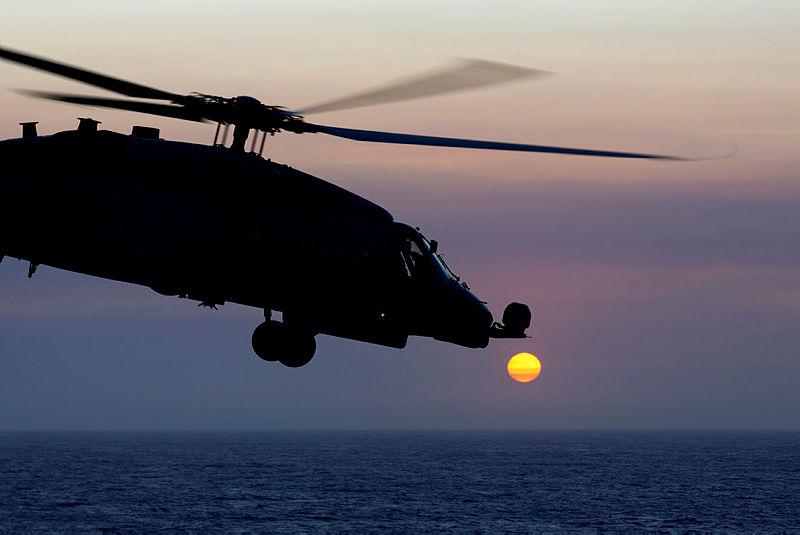
In the 1959 Alfred Hitchcock thriller North by Northwest, the hero (played by Cary Grant) is drawn in a northwesterly direction to the movie’s climax on Mount Rushmore. The movement is inexorable and inevitable. In a pair of Strategist posts, ASPI’s John Coyne implies that there’s a degree of inevitability in the movement of the Australian Defence Force to the north (-west and -east) of the country.
This northerly movement is predicated on the assumption that ‘it’s reasonable to conclude that in a future conflict the north of Australia, and more specifically Darwin, could well become the ADF’s forward operating base or a stepping stone to another location in the Pacific or in the first or second island chain’, and that bases in northern Australia ‘provide important geostrategic advantages to an army striving to own the speed of initiative’.
Are these statements accurate, and does the northerly impetus have a momentum that it is actually inevitable? Do we need, or want, to go north?
There’s no doubt that the north of Australia provides geographic advantages for the projection of airpower. It’s closer to likely operational areas, meaning less time in transit and more time actually doing the job. Similarly, there are benefits in having army elements stationed forward for defensive purposes and, as argued by ASPI’s Peter Jennings, to demonstrate Australia’s resolve to our regional partners.
Northern Australia is important for Australia’s economic wellbeing and security, and obviously needs to be appropriately protected. Military units in the north provide a measure of deterrence that units in the south simply cannot, as demonstrated by the recent announcement to upgrade the Royal Australian Air Force base at Tindal in the Northern Territory.
For humanitarian activities and for operations short of conflict, there can also be advantages to being positioned forward. A northerly stepping-off point reduces the time to get to potential operational sites if the units being moved, and the units doing the moving, are somewhat co-located. This implies that airlift and/or sealift elements must also be located in the north in order to achieve the speed of initiative that is being proposed.
So far, so good.
However, the central thesis of Coyne’s argument focuses on conflict, and it’s there where the cracks appear.
First, forward positioning of strategic airlift and sealift capabilities exposes them to far greater risks than they would face with southerly basing. The entire ability of the ADF to respond with the movement of massed troops would rest on the ability to protect the lift capabilities in their northern bases. This implies the need to acquire a level of defensive capability that we currently don’t have.
And the risks multiply from there.
Operations to the South Pacific from Darwin require transit of the Torres Strait, a passage that imposes significant operational limitations on naval manoeuvring and screening activities. It can be easily blockaded, using either sea mines or small conventional submarines. Australia’s large naval ships, replete with army personnel and equipment, will be in constrained and constraining waters for significant amounts of time, and thereby highly exposed to air and missile attack.
Transits to the likely operating areas to the north of Australia from Darwin will mean moving though the Indonesian archipelago, an area ideally suited to the operation of small submarines. The embarked army will be under significant threat during the journey. The risks are magnified if the adversary can establish itself in Papua New Guinea or East Timor. Townsville as the departure point is also bedevilled by the need to transit the Great Barrier Reef through one of a small number of navigable passages. The seaward end of these passages provides a choke point that will require sustained anti-submarine coverage to ensure safe passage. As with any Torres Strait transit, naval units will be constrained until they are in open waters.
Somewhat counterintuitively, southern locations provide the greatest protection, and the greatest operational flexibility. The choke points are fewer, the water is deeper, and the operational limitations from the departure points are minimal.
If the army is stationed forward and the lift capabilities are in the south, then, because the lift will have to go to Darwin to collect the troops, all we’re doing is exchanging a situation with manageable risks for one in which the risks have increased significantly and operational flexibility has been eroded.
Deploying from the south undoubtedly entails increased transit time, but it also brings increased survivability. There’s little ‘speed of initiative’ when the ability to arrive safely at the point of the operation is compromised, perhaps fatally so.
Australia’s geography has largely been its friend in the past. We need to ensure that we continue to realise the benefits that this geography provides, rather than sacrifice them, and potentially lots more, in an attempt to get closer to the fight.